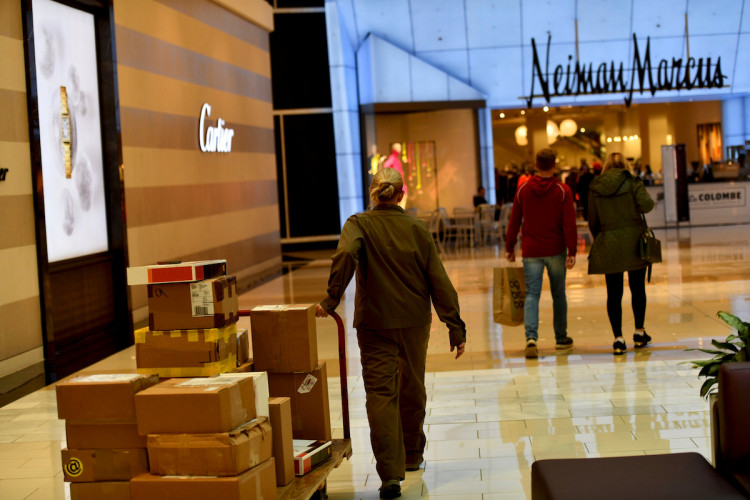Retail sales in the United States increased for the third straight month in July amid the COVID-19 pandemic, but are widely expected to plunge in August with the end of the $600 weekly jobless benefit on July 31.
The U.S. Department of Commerce on Friday revealed Americans did boost their retail spending in July by a seasonally adjusted 1.2%, or $536 billion, compared to the revised June total of $529.4 billion, up 8.4% from May. The commerce department, however, pointed out the July increase war far, far lower than spending in May, which jumped 18.3% from April.
Its advance estimates also show adjusted retail and food services sales for July came to $536.0 billion, an increase of 1.2% from May and 2.7% larger than sales in July 2019. Total sales for May 2020 to July 2020 period slipped 0.2% from the same period in 2019.
Sales at restaurants and bars grew 5% in July, which pales in comparison with the more than 30% surge in May from April and 27% in June from May in another indication Americans are running out of money. Restaurant and bar revenue is one-fifth below its levels in 2019.
Retail trade sales rose 0.8% from June, and 5.8% year-on-year. Nonstore retailers saw sales shoot up 24.7% in July 2019. Food and beverage store sales improved by 11.1% year-on-year.
Electronics and appliance stores also saw strong sales in July, which reflects a rise in purchases by mostly higher-income Americans now working from home. Purchases at clothing stores, gas stations, and drugstores also rose due partly to the $600 weekly allowance. On the other hand, furniture sales remained flat as Americans focused spending on daily necessities.
"Consumers have been largely shielded from economic realities by the various stimulus and benefit programs," said Neil Saunders, managing director of GlobalData Retail.
Saunders pointed out many of these advantages expired July 31. August will be the first month when massive economic pain hits many American households.
Economists said the $600 weekly income boost for American families crafted by the Democratic Party in their CARES Act signed into law March 27 was one of the key reasons many American families have been able to keep their heads above water despite massive unemployment. Federal government statistics show more than 30 million jobless Americans receiving unemployment benefits in June.
The Republican Party, however, opposed a continuation of the $600 unemployment benefit and allowed it to lapse by rejecting the Democrats' new $3 trillion HEROES Act and revealing their own equivalent, the HEALS Act only on August 27. In the meantime, the $600 jobless benefit expired on July 31.
Economists reveal consumers began scrimping on spending in late July. GlobalData said spending fell sharply in the first week of August as nervous consumers look anxiously towards an uncertain future.






